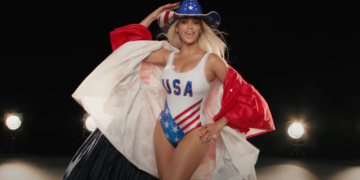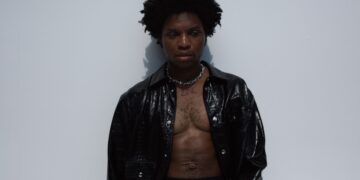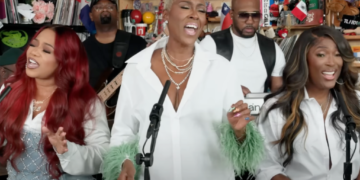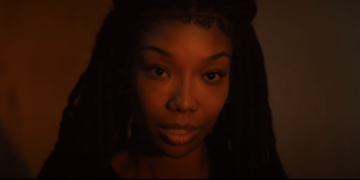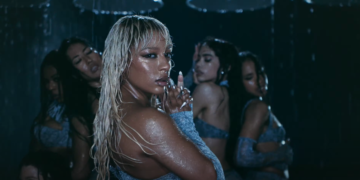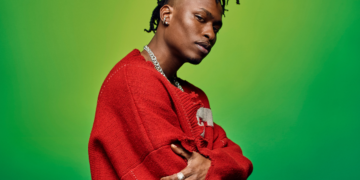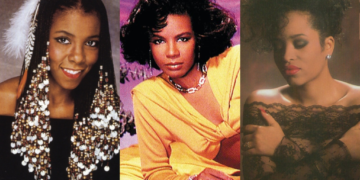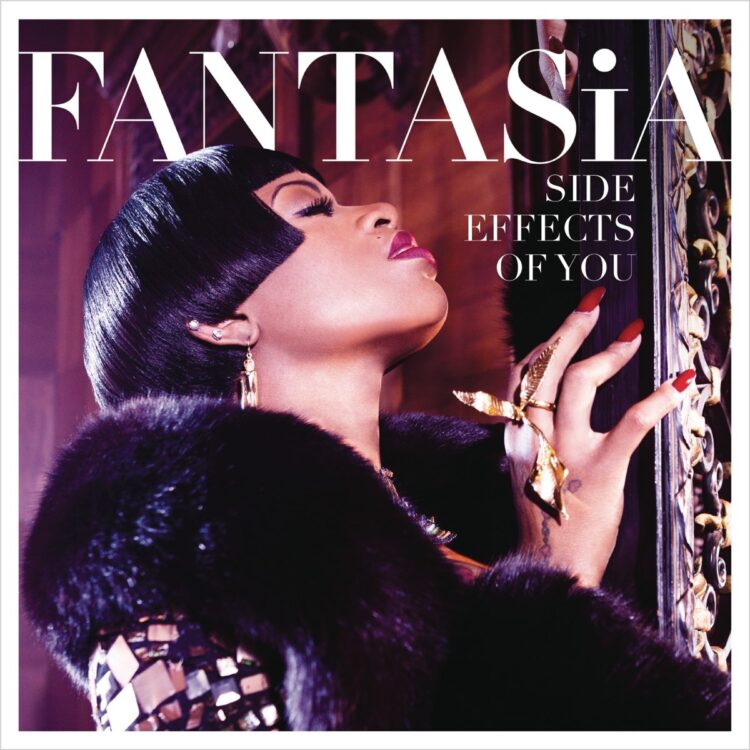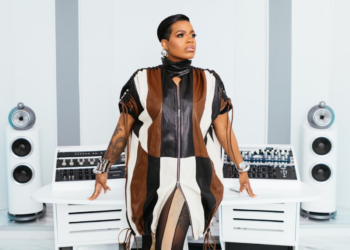When Tina Turner growls, “Oh, I’m a soul survivor,” midway through “I Might Have Been Queen,” the opener from 1984’s Private Dancer, her distinctive voice confirms she had been to hell and back.
Just three years earlier, in the fall of 1981, she had sat down with Carl Arrington, the then-music editor of People Magazine, to discuss everything, namely speaking candidly about the physical abuse she endured while married to Ike Turner for the first time.
Elsewhere in the song “I Might Have Been Queen,” Tina roars, “I lived through it all, and my future’s no shock to me.”
A year after releasing Private Dancer, she’d take home three trophies at the 27th Grammy Awards, earning one each in the general and pop field for “What’s Love Got to Do With It,” while she bagged a Grammy for Best Rock Vocal, Female for “Better Be Good to Me.”
Tina followed with three successive wins in the latter, leading her to be crowned the most-awarded Black woman in this category, and further solidifying Tina as the Queen of Rock & Roll. All of this happened because Tina decided to branch out from the musical cavern that once boxed her in as a bluesy singer with an unmatched level of enthusiasm.
Fantasia’s connection to Tina dates back to cycle three of American Idol, where she performed Ike & Tina Turner’s ’60s hit “A Fool in Love.”
“My thing about Fantasia is that she’s like a throwback to a different era,” said Simon Cowell, one of Idol‘s founding judges, about Fantasia’s song selection that evening. “She’s like somebody who isn’t around at the moment, and I wanted a song which would show off her personality, and I think the combination of this song and Fantasia will be, because I’ve chosen it, magic.”
Fast forward to 2013, Fantasia returned to the spotlight after a few years of filling the tabloids and TV and radio stations with damaging accusations and a near-death experience that nearly crippled her promising career. In touting Side Effects of You, the follow-up to 2010’s Back To Me, she kept Tina top of mind for the new movement she was set to lead.
“I’m doing something different. I call it ‘rock soul,'” Fantasia told HipHollywood. “I’m a soul singer, so I always sing what I go through, and I love the fact that Tina Turner when she first came out, everybody loved her; she was always soul. But she took a different direction, and I felt like that was her passion and where her heart was at. So, for me, that’s where my heart is, so I’ma go; I’m gonna follow it.”
Producers as diverse as Rupert Hine, Terry Britten, and Josh Carter were responsible for various tracks on Tina’s comeback album Private Dancer. Fantasia has never quite had a condensed list of studio associates, nor had she ever shown a desire to work with just one producer on an album.
On her first three albums, Fantasia made music with hit-making talents, such as Soulshock & Karlin, Missy Elliott, MIDI Mafia, Chucky Harmony and Claude Kelly, all of which had produced sizable hits and helped collect accolades for the High Point, North Carolina, native.
But Fantasia was no longer content to continue in that direction, taking cues from artists like Michael Jackson, Lauryn Hill, and Justin Timberlake, who each notably had albums nearly entirely self-produced or helmed by one producer.
This probably was the most pop-leaning R&B that she did. – Harmony Samuels
Fantasia took a gambit with the latter, tapping Harmony Samuels to produce Side Effects of You, her fourth album and first under the RCA Records banner. It worked, too.
Before then, Samuels, a London native, who was fresh in the U.S., had already racked up co-writing and production credits with Chris Brown, Mary J. Blige, Ne-Yo and Brandy.
Never before had Samuels been enlisted to assume the lone role as album producer. In fact, he was not even supposed to do so for Fantasia’s most interesting album to date.
“We were only supposed to cut one song,” Samuels exclusively tells Rated R&B. “I think it was ‘Lighthouse.’ What led to one song turned into the whole Side Effects of You album, one of the best experiences I’ve had. It’s rare that someone drops a whole album on your lap and says, ‘You do it.’ So I was very honored that they felt confident in me to deliver this album.”
Before Fantasia’s Side Effects of You was even a thought, at the beginning of the 2010s, the music industry experienced many changes.
In April 2011, the Recording Academy liquidated 31 categories, some of which affected the R&B field, among other genre-specific fields. Later that year, a handful of major and boutique labels and imprints, including J. Records, on which Fantasia was signed, were dissolved due to the great merger with RCA Records. Moreover, traditional R&B was being phased out for more dance-pop, simply titled EDM; hence breathing life into the “R&B is dead” movement.
Samuels witnessed all of this, believing this is part of why RCA brought them together. “R&B was in a very strange place,” he states. “Me being from Europe, I think what they heard was some of kind of element of pop sensibility to my R&B, so they felt like I would be a great fit for Fantasia because if you listen to all her albums, this probably was the most pop-leaning R&B that she did. I think that was on purpose. It was [a] very European-produced album. I think they wanted to kind of cross over into that sensibility [which] is why they believed in the connection [between her and me].”
Besides Fantasia stretching her sound on Side Effects of You, she also switched up her image for the rollout. She was proud of her new look, more regal and poised, as evidenced on the CD art and throughout its supporting album booklet, having been last ridiculed for her 2012 appearance on Idol.
She defended her fresh style at all costs, calling out JET Magazine for using an old promo photo of her to grace its March 18, 2013 issue. In short, Fantasia demanded respect from all angles this go-round and she got it, both from the media and on the charts.
Side Effects of You opened at No. 2 on the Billboard 200, her highest debut on the main albums chart. It also became her second consecutive album to launch at No. 1 on Billboard’s Top R&B /Hip-Hop Albums chart, following her third album Back To Me.
Side Effects of You was led by “Lose to Win,” a Commodores-influenced testimonial aided by Samuels and the late Andrea Martin. The song reached No. 3 on Billboard’s Adult R&B Airplay chart.
The album was further boosted by “Without Me,” a collaboration with Kelly Rowland and Missy Elliott that had more appeal across Billboard and radio than the lead single.
At the 56th Grammy Awards in 2014, “Get It Right” was nominated for Best Traditional R&B Performance, and “Without Me” was nominated for Best R&B Song, her first in the songwriting category.
Side Effects of You was considered in the short-lived Best Urban Contemporary Album category, her fourth straight nod in the R&B field for an album.
To commemorate the 10th anniversary of Fantasia’s Side Effects of You, Rated R&B spoke with Harmony Samuels, who co-wrote and produced all but one track on the album.
Fulfilling Fantasia’s rock soul vision
HARMONY SAMUELS: She’s a performer. She’s a modern-day Tina Turner. Aretha Franklin. She loves guitars but she also likes being sweet. I think the mix of rock & roll and R&B is where she came up with rock soul. I used to always say the soul is her. She’s the soul and the music is the rock she stands on. That’s how I named it. Whenever she would talk about rock soul, she wanted it to be genreless. She wanted to break the rules. This album was supposed to show that she can’t be pigeonholed. My job was to make you wanna go buy the ticket to see her perform live. Michael Jackson and all the greatest artists in the world, their live shows are a wider expression of where the album was. When you listen to the album, there’s enough for you to be like, “I want more of this.” I think that’s the job of the producer; to give enough of the artist but give enough where there’s room for you to get more when the fans come together.
How Naughty Boy got on board to produce the title track
SAMUELS: [Naughty Boy] and Emeli Sandé wrote that record and presented it to the label, and the label wanted us to be involved with that. They loved the record. And I was like, “Hey, that’s my guy from London. I love him. He’s a good guy and Emeli’s family. So yeah, let’s do it.” So I sat in the studio to make sure we got that expression. And [Fantasia] does that. She does it so easy. She’s the type of person who would go in the booth and sing, and you would hear this pain and cry and come out smiling, and you’d be like, “You was just in there. How are you just laughing right now?” She just has great control of her emotions. She knows when to tap into it and give you that emotion.
Thoughts on the “Side Effects of You (Remix)” getting shelved
SAMUELS: I tried. I just loved that Wu-Tang Clan meets Mary J. Blige. I wanted the label to get a feature on the record, like Wale or something. I just wanted to create that moment. I previewed it on Instagram because I wanted to get the fans to tell us what they thought. I think she was going on tour and RCA couldn’t get it together at the time. I still might use it for something else.
Sampling Whitney Houston’s “I’m Your Baby Tonight” on “Change Your Mind”
SAMUELS: I had a short but memorable experience with Whitney. I met Whitney the same year she died. I had just moved to Los Angeles. Rodney Jerkins, my mentor and the person who gave me my opportunity to move to Los Angeles, had set up a session for a song of mine to be recorded by Whitney called “Dangerous Love.” He was like, “Get to the studio right now.” So I get to Chandler Studios, walk in and here’s this one figure with her back turned listening to my song. She turns around; it’s Whitney Houston. She’s like, “Rodney, I love this song. I want this song.” Rodney was like, “Harmony produced it. This is my producer.” And, she’s like, “Harmony, what a beautiful name.” [She] gives me a hug. I always remember that day. We prayed as a unit. She was telling us about her experience in Israel and everything else. My heart was there.
There’s similarities about Fannie and Whitney: their sincerity and their honesty about how they feel and how they wanna live, and they want to live through everything, good, bad, or indifferent. They’re true to themselves, and they understand they’re not perfect. And when we were working on that “Change Your Mind,” I was like, “This is an opportunity to show love to the Queen herself.” It was my way of having her be part of something special because I wasn’t able to get that song done with her ’cause she died. It didn’t matter if we got money for it or not. We just felt like it was the perfect rendition and we did it.
Inspiration behind Fantasia’s “Without Me” featuring Missy Elliott and Kelly Rowland
SAMUELS: It was embracing trap at the time. There was this trap element in Atlanta at the time, and I wanted to embrace that culture as well as put the church in it. It was like a church trap record. It had church cords in it, for sure, but I bought a whole bunch of church energy in certain parts, but it’s a strip-club record (laughs). I wanted her to be able to be in a lot of different worlds. I think it’s cool when you walk in the club, and they gotta record they could play of yours. For Fantasia, who is predominantly in more households, cars, restaurants, and bars, to be [heard] in certain clubs where the cool shit goes down and the vibes goes down, that’s a whole ‘nother space for her.
I remember telling the label: “We’re gonna do a strip club record with Fantasia.” And they laughed at me like, “Fantasia gonna do a club record? Whatever, bro.” And we did it. Kelly Rowland’s a friend of mine and a sister, and she’s an amazing young lady who heard the record and just was like, “Yeah, I’m gonna do it.” Fannie and Missy are like blood and Missy jumped on it and the magic happened. So when the corporation tells you something can’t happen, and then you do make it happen, and it becomes successful — probably, if not the biggest song on the album — you start to trust your gut.
The healing power behind “Lose to Win”
SAMUELS: That’s why we did the record. We knew that if you give this to the world, it’s going to mean more [than just a song]. Sometimes you gotta lose to win again. That’s like poetry. Now it’s in melody and it’s a song. People suffer every day, especially in the way the world’s going right now. People need encouragement. That’s an encouraging song. That song lets you know that even when you’re down and out, there’s a way, there is truth, there’s light. It never ends in tragedy. You gotta believe there’s a win at the end. That message alone will live on forever when we’re no longer here. And that’s the whole point. That’s what I got into music for, to leave those messages. It wasn’t about the music itself. It’s cool. But when you’re able to leave messages behind for people across the world who never know who you are and whose lives are being changed, that’s called purpose. And that’s why I’m in the music business.
Why Lil Kim didn’t appear on Side Effects of You
SAMUELS: We thought about Kim on a bunch of records. We even thought about Kim on [“Without Me”] with Missy. Politics, schedules, finances, everything plays a part in where that went. We didn’t find the song that worked out for her. I would’ve loved to hear Kim on the Big K.R.I.T. record [“Supernatural Love”] ’cause that’s so New York. But that’s one thing [Fantasia] wanted to achieve, and I think she got close to it.
I'm Leaving NY and I realized that I have to do a song with @MissyElliott & @LilKim pic.twitter.com/x7UYc5Xi
— Fantasia Taylor (@TasiasWord) April 26, 2012
Story behind the closing track “In Deep”
SAMUELS: We initially wrote this for Rihanna. I was working with Courtney Harrell and then with this songwriter Sia, who we all know is a freaking legend. I remember “In Deep” was one of the songs we started working on. We kind of started the idea and had the in deep line and everything else. Fast forward, I’m in the studio with Fantasia. She said she wanted a spiritual song that rounded the album out. I was like, “I got this song; it’s half the song. You have to finish it.” I played her the first verse and the chorus and she was like, “I love it.” We finished the record together as a team. It was definitely a spiritual experience, especially when she sang it. Even though it was for Rihanna, Fantasia brought a whole new life to it. Not to sound churchy, but she made it a worship song. I feel like Maverick City can do that song right now. It is such a beautiful song. I think the posture in which her heart is makes that song even more special. She was like, “That could be a message to God. That could be a message to a person you love.” It’s an open message, and I think Fantasia really connected with it.
Why his favorite track is “If I Was a Bird”
SAMUELS: That’s a personal record for me. There’s a lot of relatability to that song. I wrote that song about my personal life that I was experiencing. I was in a relationship that was somewhat toxic at the time, and I wanted to escape and found myself stuck. This was just before I moved to the States to start my career. And that’s how I felt. If I were a bird, I would fly away, start again, and give myself a fresh perspective. And that was what transpired. I ended up flying to the States (laughs). Then when Fannie heard it, she jumped in to finish the record with me. She related to the story, too, because she felt like there were times when she wanted to escape from the industry, her past, and things that she was fighting against. We both had similar traumatic experiences that we felt like this song expressed how we felt and the resolve we got from it. So that’s why it was so special.
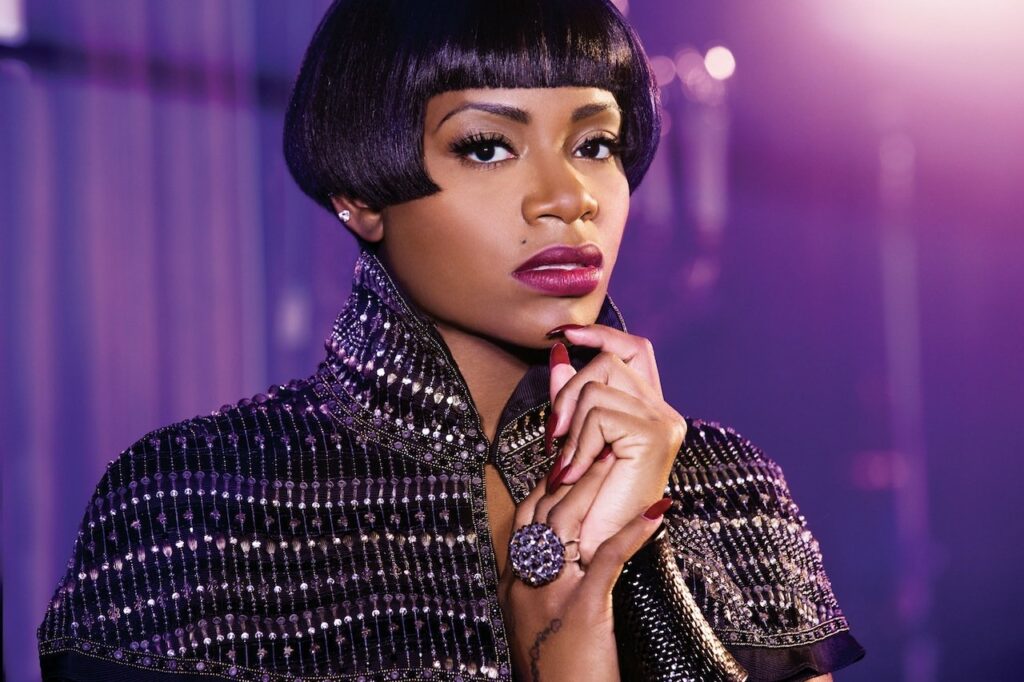
How he views Side Effects of You ten years later
SAMUELS: It was a magical moment in that period of time of us working. It was even magical when it came out because I watched someone who, behind closed doors, was met by defeat, met by criticism, met by blame, her trauma. And by the time we got through it, she was glorious. She was righteous. She was victorious. She was blessed. And then she rode off into the night on a white horse. Everything she learned, I watched her perform and was like, “She’s leaving it all on the stage.” I saw other people experience that same freedom and take that home with them.
When I look back, I see redemption. I feel freedom, love like no other, and breaking the f*cking rules. We broke rules. We didn’t do it the cookie-cutter way. We didn’t do it the way everyone thought we should do it. Even when we released the album and had the live streaming, that was the first or second time someone had ever done that. We live-streamed the playback from my studio. That was new in itself. We had fans streaming. We had people on both sides of my studio to experience Fantasia’s music. It was a beautiful affair. Kelly Rowland came, Michelle Williams came, Jordin Sparks came out. So many people came by to show love and support to this young lady. It is one of the most fulfilling albums I’ve ever worked on in my whole career. I’m super proud of her; just watching all her success and growth, her maturity in her turn into a new age, Aretha Franklin/Tina Turner. She’s just doing her thing. She’s thriving, and that album helped set her on that way.
Stream Fantasia’s album Side Effects of You below.

